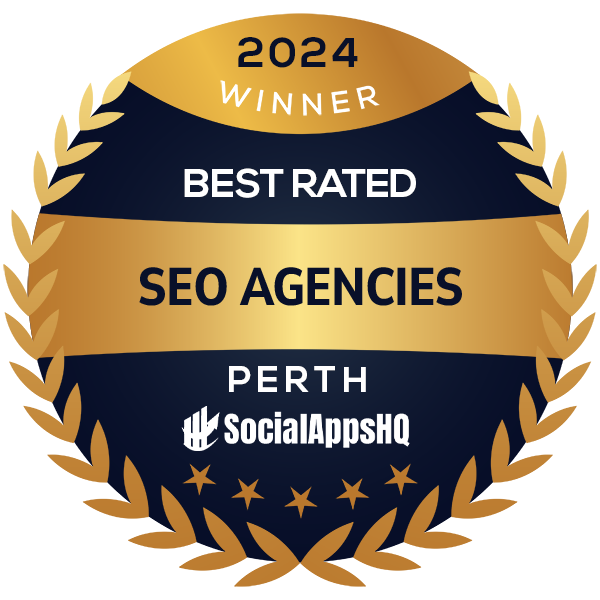In the fast-paced digital age, trust is the foundation of every successful client relationship. It’s not just about making a sale; it’s about creating lasting, meaningful connections. For businesses, especially in the construction industry, building that trust often starts with the way you communicate with your audience. One of the most effective tools in nurturing trust is educational content marketing. It not only helps to capture attention but also establishes your credibility, guides your clients through their decision-making process, and builds long-term loyalty.
In this post, I’ll delve into the powerful role educational content plays in fostering trust within your customer relationships, especially in the construction sector. Whether you’re a contractor, architect, or a project manager, educational content can set you apart in a crowded market, positioning you as a trusted advisor.
What You Will Learn:
- Why Educational Content is Essential in the Construction Industry: How content builds trust with your clients.
- The Importance of Trust in Client Relationships: Understanding why trust is the cornerstone of every successful business relationship.
- How to Leverage Educational Content Across the Customer Journey: Key strategies for different stages of the buyer journey.
- Creating and Implementing Your Educational Content Strategy: Practical tips for developing a content marketing plan.
- Content Formats and Personalization: Using various formats and personalization to engage your audience.
- Measuring Success and Adapting Your Strategy: How to track effectiveness and optimize your educational content.
Why Educational Content is Essential in the Construction Industry
In an industry that is traditionally hands-on and experience-driven, digital marketing can sometimes seem secondary. However, the construction sector is increasingly relying on digital content to connect with potential clients, whether it’s through blog posts, videos, or social media. Educational content is the key to standing out in this digital landscape.
For example, imagine a potential client searching for “how to hire the right contractor” or “cost breakdowns for building a home.” Educational content that addresses these concerns directly not only helps you gain visibility but also builds trust by offering practical, valuable insights. This type of content transforms your brand from a service provider into an indispensable resource.
Educational content serves as a form of inbound marketing, where the primary goal is to pull in prospects with useful, relevant information rather than push them with hard-selling tactics. By addressing your audience’s pain points, educational content positions your business as a trusted advisor, making it more likely that they’ll reach out when they are ready to make a decision.
The Importance of Trust in Client Relationships

Trust is the cornerstone of any business relationship, especially in industries like construction, where the stakes are high, and clients are making significant financial investments. When clients trust you, they feel more confident in your ability to deliver quality work on time and within budget.
Educational content helps you earn that trust by providing transparency and establishing your authority. It shows that you understand your client’s needs and are committed to helping them achieve their goals. By offering valuable information without a direct sales pitch, you build credibility that encourages potential clients to engage with you on a deeper level.
How to Leverage Educational Content Across the Customer Journey
The customer journey is not a one-size-fits-all process. In fact, it varies significantly based on where a potential client is in their decision-making process. The key to using educational content effectively is understanding how to tailor it to each stage of the journey.
1. Awareness Stage: Establishing a Connection
In the awareness stage, the client is just beginning to recognize their problem or need. Here, your goal is to provide helpful, relevant information that guides them through their initial stages of understanding. Content like blog posts or videos that address common challenges in the construction process—such as “Choosing the Right Contractor” or “What to Look for in Construction Quotes”—helps establish your credibility.
At this stage, you’re not selling; you’re informing. The focus should be on offering solutions to their problems and answering questions that may be keeping them up at night.
2. Consideration Stage: Deepening Engagement
As your audience progresses to the consideration stage, they begin evaluating potential solutions. Now is the time to present in-depth content that showcases your expertise. For example, consider offering case studies, in-depth guides, or eBooks that provide detailed information about your services, past projects, or industry trends.
This is also a great opportunity to share testimonials from satisfied clients or provide visual content, such as project galleries, that demonstrate your capability. At this stage, clients are not yet ready to make a purchase, but they’re interested in learning more and building a relationship.
3. Decision Stage: Sealing the Deal
Finally, in the decision stage, trust is solidified, and transparency is paramount. This is where educational content can shine by showing the human side of your business. Share behind-the-scenes content, introduce your team, and discuss your values. Detailed project timelines, clear contracts, and transparent pricing also help reassure clients that they are making the right choice.
Offering practical resources like “How to Finalize Your Construction Contract” or “Understanding Construction Budgets and Hidden Costs” at this stage will help your audience feel more comfortable making a final decision.
Creating and Implementing Your Educational Content Strategy
Now that you understand the importance of educational content, it’s time to create and implement a strategy that will support your marketing goals.
1. Identify Your Audience’s Pain Points
The first step in crafting a successful educational content strategy is identifying the key issues your audience faces. For example, homeowners may be concerned about budget overruns, while commercial developers might be focused on meeting project deadlines. Understanding these pain points helps you create content that directly addresses their needs.
2. Map Content to the Customer Journey
As we’ve discussed, each stage of the buyer journey requires a different type of content. Once you understand where your audience is in their journey, map out relevant content that supports their decision-making process.
3. Use Buyer Personas to Personalize Content
Buyer personas are detailed profiles of your ideal clients. By understanding who your clients are, what they care about, and what challenges they face, you can personalize your content to meet their specific needs. This allows you to create targeted content that resonates with your audience.
Content Formats and Personalization

Educational content isn’t just limited to blog posts. To effectively reach your audience, you should leverage a variety of content formats that cater to different preferences.
- Blog Posts: A cornerstone of educational content, blog posts help drive organic traffic and improve SEO.
- Videos: Videos are particularly effective for demonstrating your services or showcasing past projects.
- Webinars: Hosting webinars allows you to engage directly with potential clients, answering their questions in real time.
- Infographics: Infographics are great for breaking down complex information into digestible, shareable formats.
Personalizing your content—whether by addressing your audience’s specific concerns or by segmenting your content based on different buyer personas—will also help make a more meaningful connection with your clients.
Measuring Success and Adapting Your Strategy
To assess the effectiveness of your educational content, it’s important to track key performance indicators (KPIs). Metrics such as website traffic, engagement rates, and lead generation provide valuable insights into how well your content is resonating with your audience.
Don’t just focus on immediate results—educational content often takes time to pay off. Keep track of feedback and adjust your strategy as needed to improve results. A continuous review process will ensure that your content remains aligned with the needs of your audience.
Ready to Elevate Your Marketing Strategy?
At this point, you should have a solid understanding of how educational content can build trust and engage your clients throughout their journey. But crafting a successful strategy requires expertise, time, and dedication.
That’s where we come in. Our Content Marketing Service helps construction businesses like yours create and execute effective educational content strategies that drive traffic, nurture leads, and ultimately increase conversions.
Get a Free Marketing Plan today and let’s discuss how we can elevate your digital presence with a customized content strategy tailored to your specific needs.


